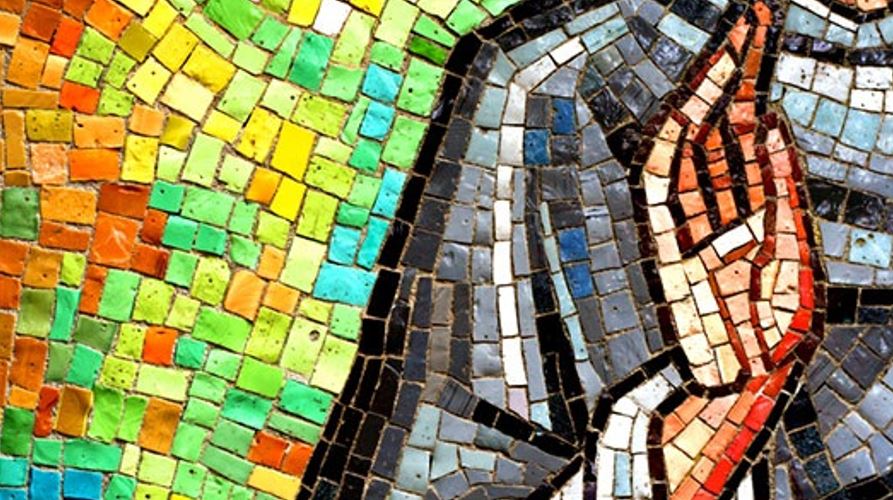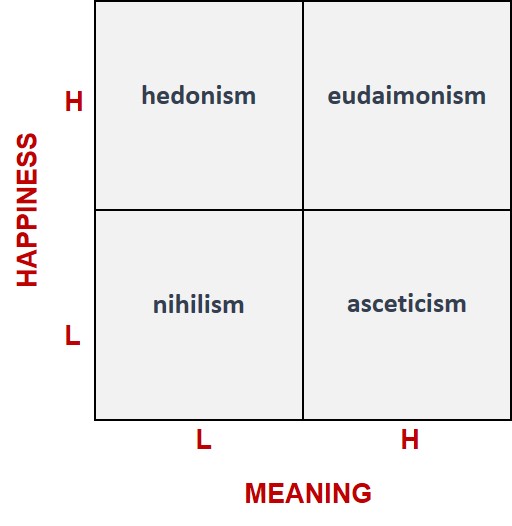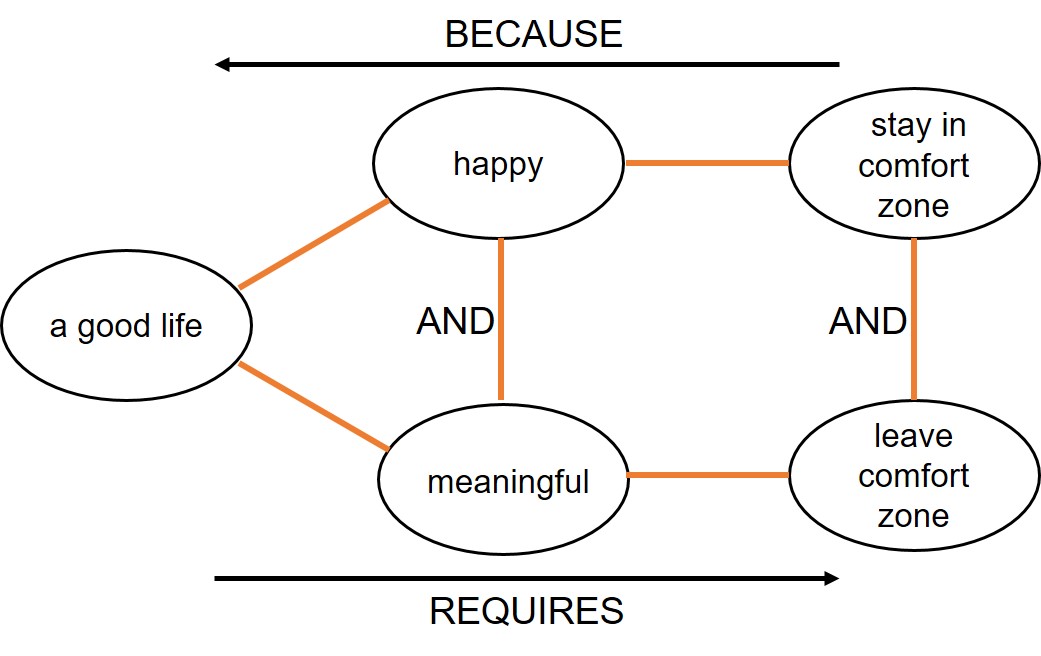I made Joshua Greene’s book ‘Moral Tribes’ book of the month in our ezine this month (http://systematic-innovation.com/current-e-zine.html), but I’m still more than a bit freaked out by the book’s assertion that ‘happiness’ is the ultimate measure of individual and societal well-being. Greene is by no means alone in the assertion: enormous chunks of the self-help literature seem to point towards the same definition of the meaning of life. Other thinkers have different opinions, the most coherent of which seems to be the Kierkegaard/Frankl concept of ‘will to meaning’. Beyond that, there seems to be a lot of confusion – meaning is a necessary (but insufficient) condition for happiness; happiness is an outcome following attainment of meaning; happiness and meaning are opposite ends of a spectrum; happiness is meaning. The philosophers of the world have a lot to answer for. Of all the domains of human endeavour right now, they seem to be the ones that are the most lost.
Being lost is, in theory at least, an important – some might say ‘necessary’ – precursor to breakthrough. But only if you’re asking the right questions. And that’s where it seems to why the world of academic philosophy is so adrift. No-one seems to know what the right questions are. Or, maybe, it’s that there are too many questions and no-one can make sense of them?
From a Hegelian or TRIZ perspective, the ‘right’ questions almost always involve the definition of contradictions.
Taken from this perspective as soon as we hear questions like ‘is it happiness or meaning that defines a successful life?’ we know the answer is both. There is no such thing as either/or when it comes to defining good questions.
Meaning and happiness are two essential components of a ‘good life’. They are also largely independent of one another. Which in turn means that it’s very possible to achieve one without affecting the other. Which then means I can draw happiness and meaning as two orthogonal axes of a matrix. Something like this:
As with any good 2×2 matrix, the top right-hand quadrant define the ideal state in which we achieve the best of both of the parameters defining the two axes. It’s also the corner where the conflicts and contradictions between the two parameters are successfully resolved.
It’s also, too, useful with 2×2 matrices to be able to find words to characterise each of the quadrants. I’m not sure I’ve got the labels totally right in all four case, but I’m pretty certain the ‘eudaimonism’ word in the top right-hand is the right word. The fact that I’d never heard of it before tells me two things. The first of which is that not many people have thought about the need for a word to define a ‘happy and meaningful’ situation. As it happens the word comes from Aristotle and the Ancient Greeks. Which is perhaps ironical given their Socrates-driven insistence on the kind of either-or thinking that got us all into this mess in the first place. But this then leads on to the second thought: has anyone ever thought about explicitly formulating (and, better yet, resolving) the contradiction between happiness and meaning?
As far as I can see, the answer to that second question is ‘barely’. Which to my mind seems to offer up a big reason for the mass of philosophical confusion. Enter TRIZ.
Happiness and Meaningful are largely independent and fundamentally in conflict with one another. Key word ‘fundamentally’. The reason they’re in conflict is because of contradictions between the now and the future, taking and giving, or staying in our comfort-zones and escaping from those comfort-zones. Something like this:
They say a problem well defined is a problem half-solved. Solutions may still take a while, but I feel a lot more confident than I was ploughing through the philosophers’ confused ramblings, that this picture offers up a much better problem to work on.



